So you just got a new budgie and all it does is stay on a perch and not move? This odd behavior can drive you crazy as you wonder what exactly could be the issue with your budgie and what you can do to help it.
New budgie not moving is quite normal behavior for new budgies and happens because the budgie is scared of its new surroundings. It may take time to adjust to its new home. The environment you put your budgie in and underlying health issues may also cause your new budgie not to move.
Below, we’ve shed more light on the most likely reasons why your budgie can’t seem to move around in its cage and some helpful tips on what you can do to help your newfound friend in this situation.
Why your new budgie is not moving:
Here are the most common reasons why your new budgie just sits there without moving around in its cage.

Stress due to change in environment
The most likely explanation for why your budgie doesn’t move when you bring it home is due to stress caused by finding it in a new environment.
Your budgie is probably scared by new sightings around it. It finds itself in a new cage with a completely different setting, around new people, perches, toys, new feeding dishes, and water bowls. And it can’t see the budgie friends it has gotten used to.
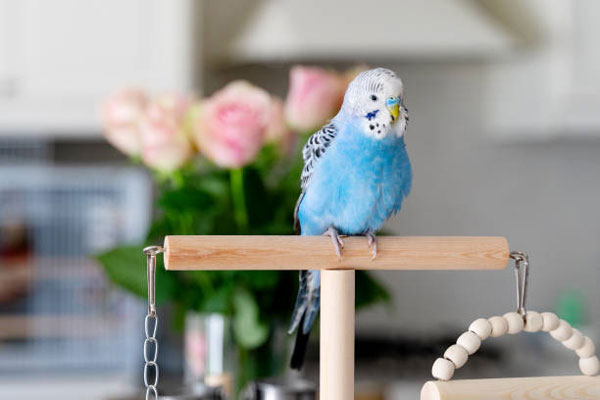
Your new budgie might even refuse to eat or drink or simply do it when you’re not around because it doesn’t know you enough to trust you at this point!
This behavior is absolutely normal and you should get concerned. You just need to give your budgie time to become accustomed to its new home.
This may take a few days or even weeks, so you should just be patient with your new pet bird.
Motivating environment for your budgie
It could also be that the new environment you put your budgie in is far from what he’s been used to and it doesn’t motivate him enough to want to move around.
For instance, the cage could be too small for your budgie which makes it hard for your budgie to play, climb, or fly around.
If your cage is cluttered with perches and toys, your budgie could be having a hard time moving around freely. It could even make it hard for your budgie to completely open its wings to stretch and flap them.
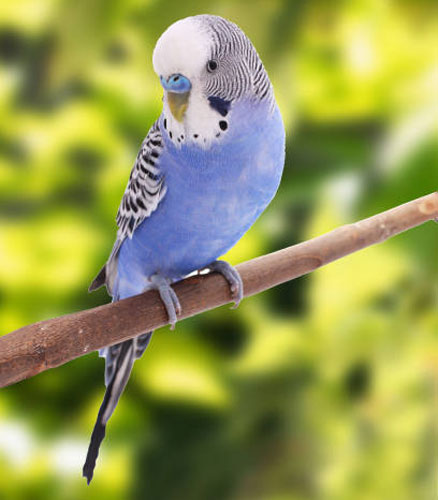
Some new budge owners think adding too many hanging toys and perches is the ultimate hack to keeping your budgie happy. But this may end up obstructing its space and discourage free movement.
Make sure you equip your pet’s cage with a minimum of two perches so that he can hop from one perch to the other, ensuring free movement.
Your budgie could be unwell
If your “new budgie no moving” behavior goes on for a few days, then you should be concerned.
Budgies are generally high-energy and active birds, so your bird not showing any signs of being active around its new cage could be a sign that it’s unwell.
Remember, one of the common signs of an ill budgie is lethargic behavior or a decrease in the level of activity.
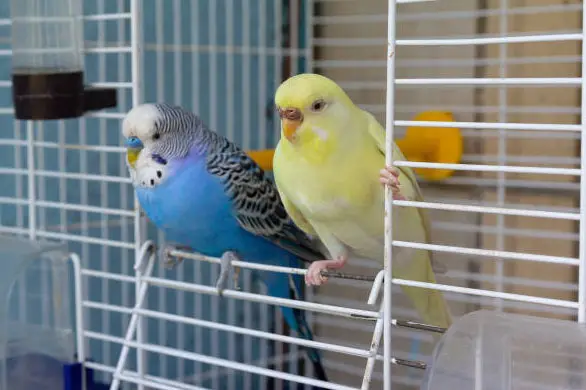
Look for additional signs of a sick budgie such as loss of appetite, puffed up, or your budgie not becoming more alert as you get close to its cage.
If your budgie shows additional signs of being ill, take him to the vet for a proper examination to find the exact health issue he’s going through and get the best possible treatment.
TIP: Visiting an avian vet is one of the things you should do when you bring a new budgie home to ensure he’s healthy and safe from diseases and parasites.
Is it normal for new budgies to not move?
It’s quite normal for new budgies to not move. As we’ve disused above, the budgie is totally scared at this point as it finds itself in a completely new environment.
You shouldn’t panic if your budgie doesn’t move when you bring it home. Instead, give him time to adapt and feel comfortable in his new surroundings.
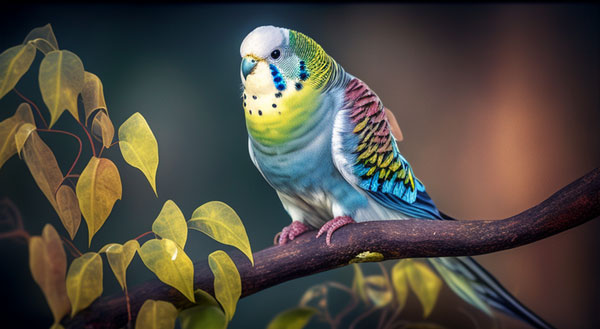
That said, if your budgie stays for more days without moving, this should concern you as the bird could be unwell.
If the budgie shows additional signs of sickness such as not eating, irritability, fluffed up, etc., then it’s unwell and requires immediate avian veterinary help.
What should you do if your budgie is not moving?
You can help your budgie to bialy adjust to its new home by making its environment as comfortable and welcoming as possible
Provide it with plenty of perches and toys to play with, and ensure its cage is spacious enough to allow for free movement.
Consider placing the bird’s cage against a wall as opposed to the middle of the room where it can easily get scared and stressed.
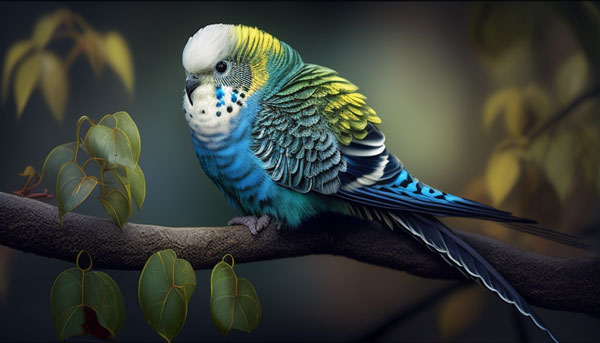
You may also consider placing a towel to cover their back and top parts, so only the front and sides are uncovered. This will help make your budgie feel secure.
Don’t fly your budgie out of its enclosure for now. Also, avoid touching, holding, or petting your budgie until he becomes comfortable in his new environment.
You can also try sitting next to his cage and talking or singing to him gently.
Get rid of potential budgie stressors such as loud music, loud noises, and moving quickly around its cage.
If you have a dog or cat, keep him out of your budgie’s room to keep your budgie from getting stressed even more.
When you do these things, your budgie will slowly regain its confidence slowly and start exploring its new space.
How long does it take for a new budgie to settle in?
There’s no specific period of time for budgies to settle in. The exact time it takes depends on the individual budgie and the circumstances surrounding it.
Some budgies will get used to their new home in hours or days while others may take weeks.
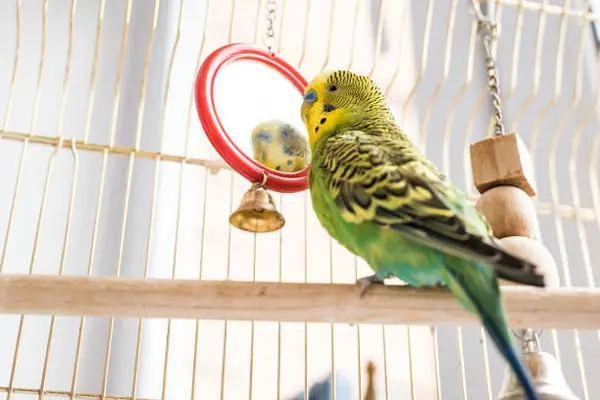
But in general, you should give your budgie about 2-4 weeks to become fully accustomed to its new environment.
During this period, be sure to make its environment as comfortable and welcoming as possible.
Final Verdict
It’s completely normal for your new budgie to stay perched and not move as it’s terrified of the new surroundings. The environment you put your budgie in may also discourage it from moving around. Too small a cage, cluttered space, and lack of perches and toys can make your budgie feel unmotivated to move around.
However, if your budgie doesn’t seem to move even after a few days, even after making its environment comfortable, he’s probably ill and has turned lethargic. In this case, you should take your bird to an avian vet immediately to have him checked and treated before things get worse.







